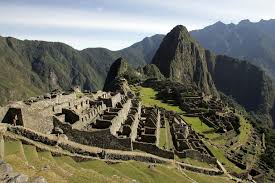PARIS, (APP/AFP): Mining, oil exploration, illegal logging
and other industries threaten almost half the natural World Heritage Sites the UN seeks to preserve for future generations, conservation group WWF said Wednesday.
The 114 threatened sites provide food, water, shelter and medicine to
over 11 million people — more than the population of Portugal, according to a WWF-commissioned report.
“Despite the obvious benefits of these natural areas, we still
haven’t managed to decouple economic development from environmental degradation,” WWF director general Marco Lambertini said in a foreword.
“Instead, too often, we grant concessions for exploration of oil, gas or minerals, and plan large-scale industrial projects without considering social and environmental risks.”
The UN Educational, Scientific and Cultural Organisation (UNESCO)
lists 197 “natural” and 32 “mixed” Heritage Sites in 96 countries around the world, alongside 802 cultural sites.
The 229 natural and mixed sites, nominated by governments of the
countries in which they are found, include national parks and nature reserves, forests, coral reefs, islands and coastal areas.
The report said oil or gas concessions had been granted in 40 of the
sites and mining concessions in 42.
Twenty-eight sites were at risk from dams or unsustainable water use,
28 from illegal logging, two from overfishing, and 20 from construction of roads or railways. Many sites were threatened in more than one category.
Countries are meant to assume responsibility under the World Heritage
Convention to protect listed sites within their borders.
International News
Industry threatens nearly half of natural heritage sites: WWF
